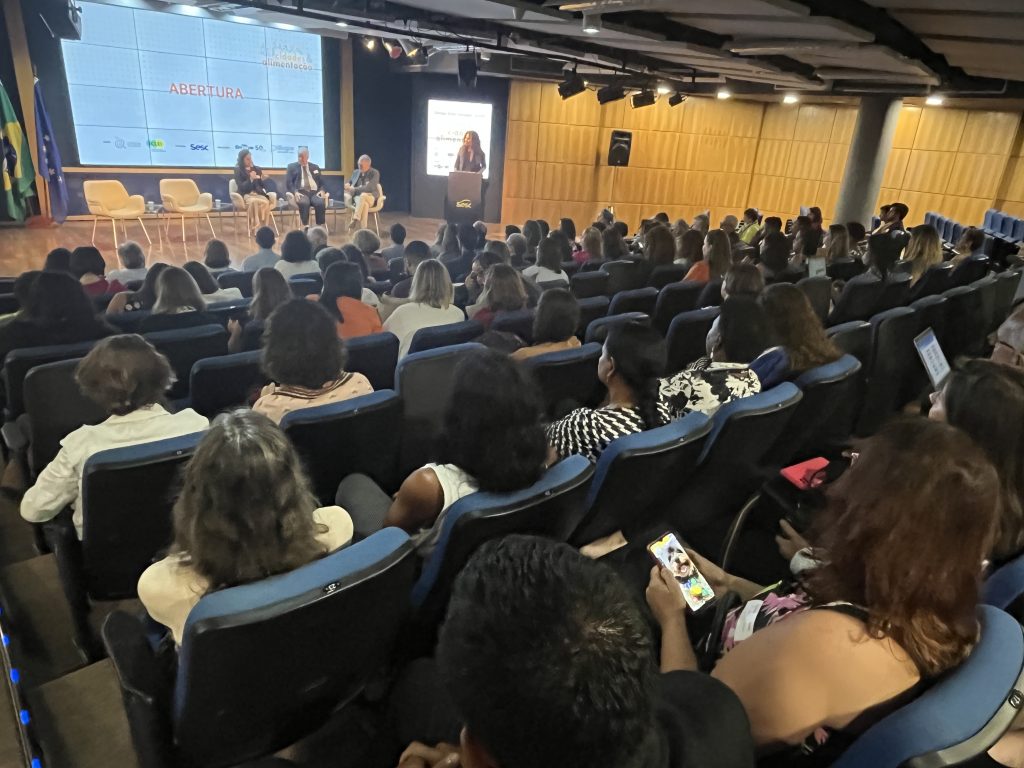Initiative charts pathways for food security and nutrition in cities
The “Cities & Food” initiative explores how urban areas can lead in accelerating transformations for sustainable food systems, offering insights for national and local policies.
The research project “Cities & Food,” conducted as part of the EU-Brazil Sectoral Dialogues on Sustainable Urban Food Systems, led by Embrapa and the Food for Tomorrow Institute, highlights the potential of cities as hubs for driving desired changes to accelerate the transformation of food systems. This initiative, financed by the Delegation of the European Union in Brazil, aims to promote sustainable urban food systems.
Key cities

Foto: Coletivo Banquetaço/Divulgação
At an event held on September 26th, the project’s results were unveiled, and experiences were exchanged among ten Brazilian and European cities that participated in the initiative.
Five Brazilian cities, Curitiba (PR), Maricá (RJ), Recife (PE), Rio Branco (AC), and Santarém (PA), were the subjects of case studies on food systems and public policies. Additionally, a gravimetric study on waste characterization was conducted at open-air markets in Curitiba, Recife, and Rio Branco. The selection of Brazilian cities for the project considered regional diversity and their involvement in the Urban Laboratory for Food Policy (LUPPA), associated with the Food for Tomorrow Institute.
In June 2023, technical visits were made to European cities, including Valencia, Barcelona, Turin, Milan, and Ghent, with representatives from the five participating Brazilian cities, Embrapa, and the Food for Tomorrow Institute. On September 27th, a technical visit was organized to Maricá, RJ, with participants from Embrapa, the European Union Delegation in Brazil, the Food for Tomorrow Institute, and representatives from Brazilian cities.
During this visit, initiatives based on the Legal Framework for Agroecology and Agroecological Transition, such as the Dehydrated Factory, the Agroecological Araçatiba Square, and the Agroecological Unit at the Joaquín Piñero Public Farm, were presented.
Impact on national and local public policies

Foto: Embrapa
The research findings are expected to inform national and local public policies, including the Brazil Without Hunger Plan, a national strategy for food security in urban centers led by the Ministry of Social Development and Assistance, Family, and Hunger Eradication (MDS).
Gisele Bortolini, Coordinator-General for Sustainable Food Promotion at MDS, highlighted that of the 33 million people experiencing severe food insecurity in Brazil, 27 million reside in urban areas. The experiences of the five Brazilian cities will inspire the development of a national strategy for food security, which will encompass a set of commitments by the Brazilian government to reduce food insecurity, hunger, and climate change effects by COP 2025, to be held in Brazil.
In Recife, the Executive Secretariat for Urban Agriculture plans to launch the Apetitar program, an intersectoral initiative aimed at raising awareness about the potential for utilizing discarded foods from local markets and public fairs. This program will address the issue of food waste, as a gravimetric study conducted in March 2023 revealed that more than 1,000 kilograms of food are wasted daily in markets in Recife, of which approximately 635 kg are suitable for donation to the Recife Food Bank.
This strategy aims to combat hunger by identifying, collecting, and utilizing food while reducing waste through a technological platform connecting citizens and private entities donating food. The primary beneficiaries will include those served by the food bank, individuals referred by CRAS (Social Assistance Reference Centers), and community kitchens, particularly those experiencing food insecurity and nutrition challenges.
In the year of Embrapa’s 50th anniversary, the results of this project align with its mission to provide research, development, and innovation solutions for the sustainability of agriculture, benefiting Brazilian society. The project’s outcomes contribute to stimulating and strengthening public policies for productive inclusion and expanding access to healthy, quality food for urban populations, particularly those affected by social inequalities, climate change, and post-pandemic challenges.
Ricardo Elesbão, Deputy Head of Research, Development, and Innovation (PD&I) at Embrapa Alimentos e Territórios (Maceió, AL), emphasized that progress has been made in encouraging and bolstering public policies for productive inclusion and improving access to healthy, quality food for urban populations affected by social inequalities, climate change, and post-pandemic challenges.


